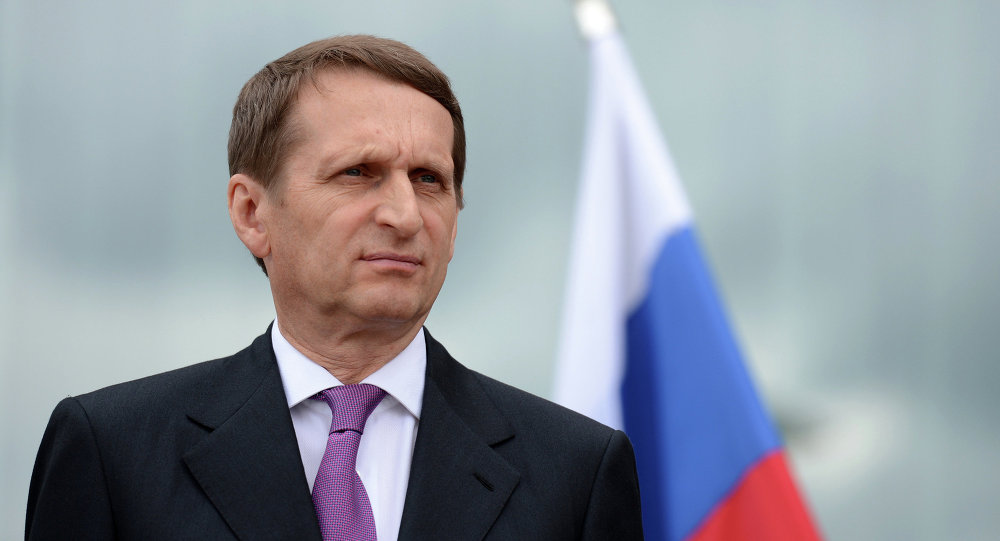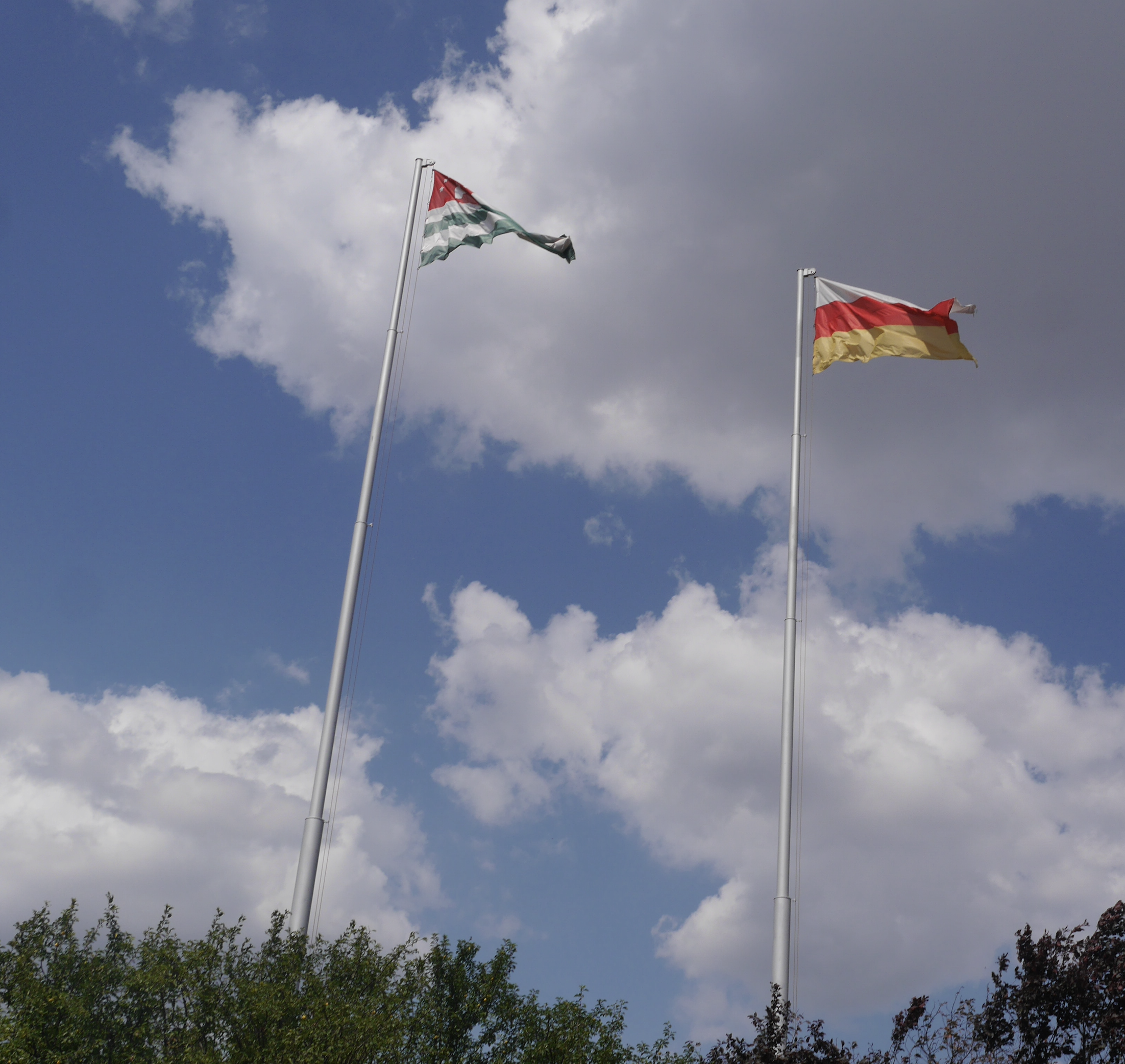
Russia Retreats From International Developments
Russia Retreats From International Developments
The end of April was extraordinarily rich in high-profile international events—and Russia was conspicuously absent from all these dynamics. The president of South Korea and the North Korean dictator planted a pine tree of peace just to the south of the ceasefire line that still divides these two states. French President Emmanuel Macron paid a state visit to Washington, DC (an oak tree was duly planted), and his overtly friendly talks with United States President Donald Trump on Tuesday (April 24) were followed-up by the visibly less cordial exchanges with German Chancellor Angela Merkel, who traveled the same route on Friday. Foreign and security ministers of the G7 met in Toronto, Canada, and the North Atlantic Treaty Organization (NATO) held a ministerial meeting on Friday, greeting the newly confirmed US Secretary of State Mike Pompeo. Armenian Prime Minister Serzh Sargsyan resigned under pressure from mass street protests on Monday (see EDM, April 23), and the peaceful rallies have continued for the whole week, preventing his successor from taking office. Russian policies and attitudes were debated in the anxious streets of Yerevan and around every diplomatic table, but the Kremlin had nothing specific to contribute to these discussions.
Of all the breaking international news, it is the turmoil in Armenia that is of crucial importance for Moscow, and not only because this small South Caucasus state is one of Russia’s few allies. It is the occasion of an apparently solid regime collapsing under a sudden public uprising that sends shock waves through Moscow. The official media had ignored the protests up to the very last moment of breakthrough (Novaya Gazeta, April 26). Evidently, the Kremlin believed that the opposition would be effectively suppressed. But Sargsyan’s decision to step down rather than resort to violent force caught Russian President Vladimir Putin unprepared (Snob.ru, April 24). The ambivalent official line now coming out of Moscow is in support of “consensus,” with emphasis on all parties to the Armenian crisis to commit to preserve the alliance with Russia (RIA Novosti, April 27). Contacts with the suddenly victorious opposition are still kept to the minimum, but Sergei Naryshkin, the chief of the Foreign Intelligence Service (SVR), traveled to Baku to discuss the crisis with Azerbaijan’s President Ilham Aliyev (TASS, April 24). This more-or-less friendly ruler has never hesitated to subdue domestic protests in the past; but the problem for Moscow is whether he might try to exploit the turmoil in Yerevan to launch an offensive in Karabakh (see EDM, April 24).
The theater where Russia has been demonstrating its international relevance is Syria. Indeed, it was the desire to stop the tide of revolutions that prompted Putin to launch the military intervention two and a half years ago. The April 14 US missile strike (augmented by France and the United Kingdom) on Syria’s chemical weapons program pushed Russian policy into limbo, even if the General Staff keeps arguing that most missiles missed their targets or were intercepted (Kommersant, April 26; see EDM, April 16, 19). The vaguely outlined option for supplying Bashar al-Assad’s regime with modern S-300 surface-to-air missiles is effectively nullified by Israel’s signaled willingness to target this potential threat (Moskovsky komsomolets, April 24; see EDM, April 26). Meanwhile, electronic jamming of US drones and EC-130 Compass Call aircraft invites the risk of counter-cyber-attacks, which could expose Russian bases to terrorist hits (Nezavisimaya Gazeta, April 26). The pseudo-peace process Russia has tried to promote arrived at a dead-end, and the United Nations’ special envoy to Syria, Staffan de Mistura, acknowledged this, much to the disappointment of the Russian foreign ministry (Kommersant, April 27).
The most contentious issue in the Syrian deadlock is the involvement of Iran, Russia’s only state ally in supporting the al-Assad regime and in condemning the US strikes—which strains ties with Israel (Russiancouncil.ru, April 19). The Russian leadership apprehensively watched Macron and Merkel try to dissuade Trump from abandoning the nuclear deal with Iran, known as the Joint Comprehensive Plan of Action (JCPOA) (Nezavisimaya Gazeta, April 25). Moscow favors preserving this deal, but the European plan envisages adding talks about Iran’s regional activities—essentially meaning Syria, where every reduction of Iran’s involvement would expose the Russian forces to greater risks (Kommersant, April 28). The collapse of the nuclear agreement would deliver Russia into an even riskier predicament: the Iranian forces in Syria, along with Russian advisors and mercenaries (see EDM, February 15, 20, April 19, 23), might become targets for US and Israeli strikes, even if the de-confliction channels remain functional.
The majority of Russians express determination to maintain support for al-Assad’s regime, even if it comes under direct attack by the US. But Putin—while fanning such pro-war sentiment—knows better than to take a “principled” stance in such an unequal fight (Wciom.ru, April 26). For him, the Syrian enterprise has always been a means to make Washington take Moscow seriously—though not as a battlefield adversary (Republic.ru, April 23). This enterprise was more successful than expected. However, with Trump not shying away from casually referencing the US military’s “very very severe fight” in Syria with “Russian troops,” that success has clearly turned into a vulnerability and a burden (RBC, April 19). Neither Moscow nor Washington has a coherent strategy for managing the Syrian war, but the sequence of tactical situations leaves Russian forces stuck in an exposed position, while the initiative is grasped by other parties. Moscow cannot foresee the next US move, and preparing for the worst case is likely a hopeless task. “Patriotic” mobilization at home yields scant additional resources, and sober Russian experts have begun questioning the outcome of overly challenging the mighty and maverick adversary in the White House (Carnegie.ru, April 26).
Even the conspiratorial minds in the Kremlin do not suspect the US’s hand in the unfolding unrest in Armenia. But even if they did, it is hard to escape the conclusion that there is little Russia can do to stop this “no-color” revolution. Putin used to be a step ahead of his opponents on the international chessboard, but presently he cannot find any winning moves. Passivity does not pay amidst the fluid interactions and intrigues, and nobody is missing Russia’s contributions to any of the fast-evolving crises. Over-extension—which Russia is arguably experiencing—cannot be mitigated by a pause; but a reasonable retreat is hardly in the cards, as the Kremlin registers the growth of Western resolve and monitors the street power in Yerevan.


